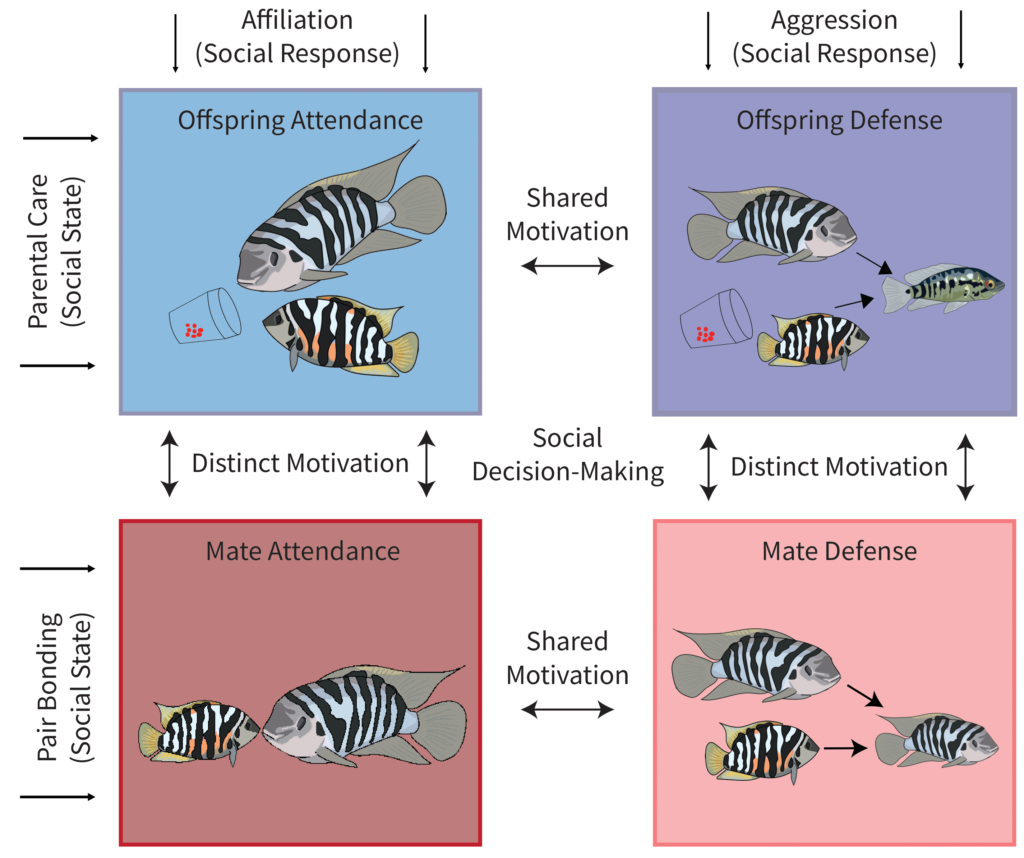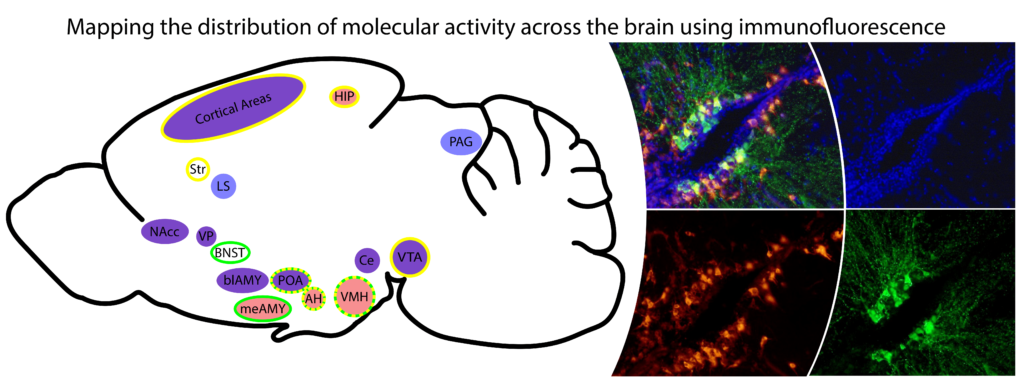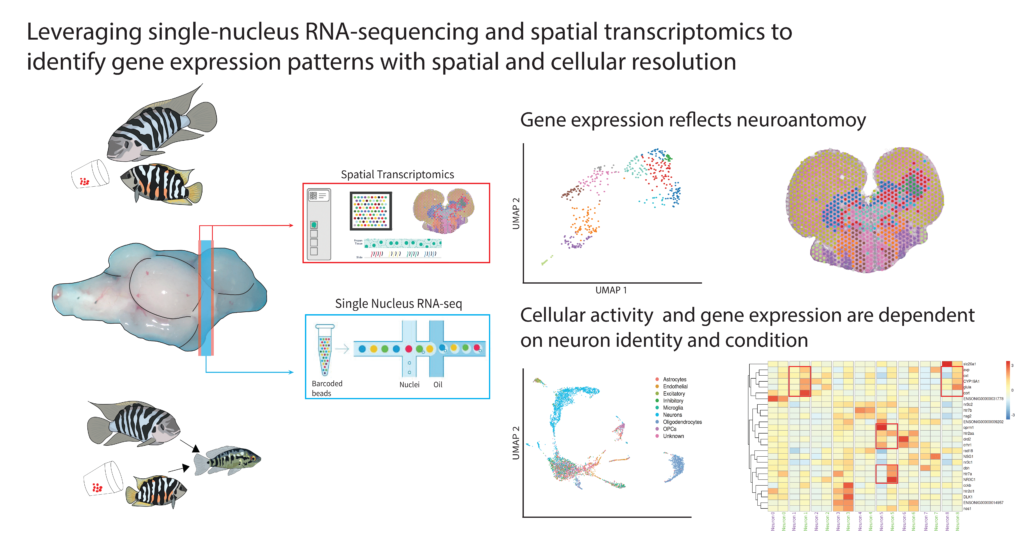Social States

Parental care and pair bonding are examples of social states in which the behavioral responses to environmental stimuli often follow stereotypical patterns, each encompassing a repertoire of behavioral displays, both of which contain elements of affiliation and aggression. However, investigations in the underlying neural mechanisms mediating behavior rarely account for differences in social (or motivational) states. My research explores how different components of the dopaminergic reward system motivate context appropriate aggressive and affectionate social responses. The convict cichlid is an experimental model system that lends itself well to experimental manipulations of these state dependent social responses. Specifically, in the investigation of how social bonds affect the abundance and distribution of molecularly defined cell types across socially sensitive brain areas and in determining extent to which the same brain regions, cell types, and gene expression patterns are shared versus unique across and within socially regulated internal states.

